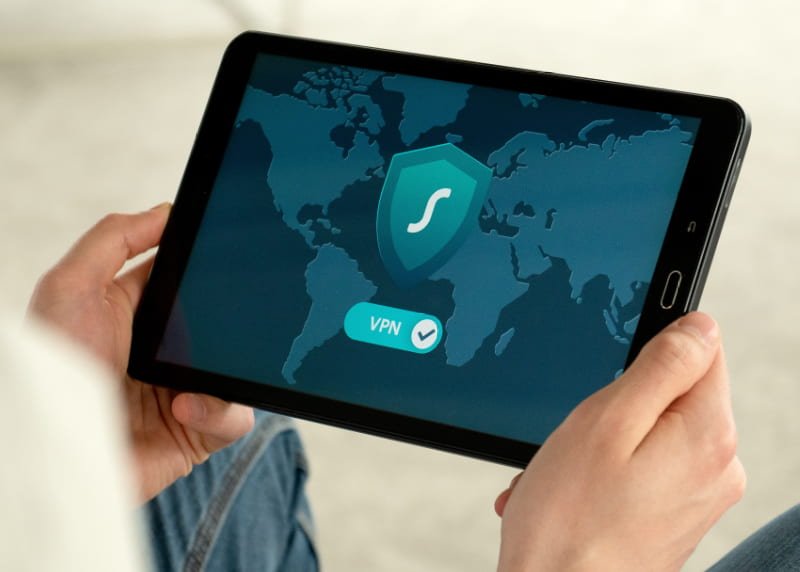If you work remotely, you’ve likely been using a virtual private network (VPN) to connect to your company’s network. But there’s another option: remote desktop protocol (RDP). It’s a protocol that allows a user to connect to another computer over a network. So, what’s the difference between RDP and VPNs? Here’s a rundown.

What is RDP?
RDP is a protocol designed by Microsoft for creating a secure connection between two computers over the internet. It is commonly used by remote workers to connect to their office computer from home, or by IT professionals to connect to and manage servers. RDP uses encryption and other security measures to ensure that data is not intercepted or tampered with during transit.
What is VPN?

A VPN is a private network that uses a public network, usually the Internet, to connect remote sites or users together. Unlike RDP, which is designed to provide access to a specific computer, a VPN can provide access to resources on a network as if the user were physically present on the network. This can be useful for employees who need to access company resources from home or when traveling. It is often used to access region-restricted websites, shield your browsing activity from prying eyes on public Wi-Fi, and more.
What’s the Difference Between RDP and VPNs?
Whether you’re using a remote desktop protocol (RDP) or a virtual private network (VPN), both options can give you the remote access you need to work from anywhere. But which one is right for you? Here’s a look at the key differences between RDP and VPN:
RDP is a proprietary protocol developed by Microsoft that provides a graphical interface for users to connect to another computer over a network connection. VPN, on the other hand, is a general-purpose technology that can be used to create secure, encrypted connections over any type of network. RDP is typically used for accessing Windows-based applications and desktops, while VPN can be used to access any type of resources on a remote network. RDP connections are typically point-to-point, while VPNs can be point-to-point or multi-point.

There are a number of factors to consider when choosing between RDP (Remote Desktop Protocol) and VPN (Virtual Private Network) security solutions. Here are a few key considerations:
- Cost: RDP is typically cheaper than VPN since it requires less hardware and software infrastructure.
- Ease of use: RDP is generally easier to set up and use than VPN since it uses a standard protocol that is already built into most operating systems.
- Security: VPN is generally more secure than RDP since it encrypts all data passing between the two points and can be used with stronger authentication methods such as two-factor authentication. However, both solutions can be secured with proper configuration and security measures.
What are the benefits of using a VPN and RDP together?
If you work remotely, chances are you’ve used a Virtual Private Network (VPN) to connect to your company’s network. But what about using a VPN in conjunction with Remote Desktop Protocol (RDP)? Here’s why you should use a VPN and RDP together.
- A VPN establishes a secure, encrypted connection between your computer and your company’s network. This connection allows you to access files and applications as if you were on the network.
- RDP is a protocol that allows you to connect to another computer over the internet. This is useful for remote desktop support or accessing applications that are only available on the office network.
- When used together, a VPN and RDP provide a more secure connection than either one alone.
Advantages of RDP
There are many advantages of RDP which include ease of use, portability, and security.
- RDP is a protocol that allows users to connect to a remote computer over a network connection. RDP is used by businesses and organizations to allow employees to access their work computers from home or while traveling.
- It is easy to set up and use, and it is very portable. RDP can be used on almost any type of computer, including laptops, tablets, and smartphones. RDP is also very secure, as all data is encrypted during transmission.
- Overall, RDP is an extremely useful tool for businesses and organizations. It allows employees to stay connected to their work computers while away from the office, and it is very secure.
Advantages of VPN
A VPN, or Virtual Private Network, is a private network that encrypts and transmits data while it travels from one place to another. A VPN is created by establishing a virtual point-to-point connection through the use of dedicated connections, virtual tunneling protocols, or traffic encryption.
Advantages of VPN:
- Bypasses geo-restrictions and censorship: Connect to a VPN server in a different country and access websites that are normally blocked in your region.
- Increases online privacy and security: Encrypts your online traffic so your ISP cannot see what you’re doing online. This also makes it more difficult for hackers and third-party snoops to gain access to your personal information.
Disadvantages of RDP
There are a few disadvantages to using RDP which include:
- Security Risks: Because RDP is a remote access protocol, it can be exploited by hackers to gain access to a person’s computer without their knowledge. This can lead to sensitive information being stolen or malware being installed on the victim’s machine.
- Potential for Abuse: Due to the nature of RDP, it can be abused by malicious users to gain unauthorized access to another person’s computer. This can be used for nefarious purposes such as stealing sensitive data or planting malware.
- Performance Issues: RDP can sometimes cause performance issues on a person’s computer, especially if they are trying to use resource-intensive applications. This can be frustrating for users and may cause them to avoid using RDP altogether.
Disadvantages of VPN
A VPN, or Virtual Private Network, can be a great way to secure your internet connection and protect your privacy. However, there are some disadvantages to using a VPN that you should be aware of.
- One downside of VPNs is that they can slow down your internet connection. This is because your data has to travel further to reach the VPN server than it would without a VPN. Additionally, if the VPN server is located in a different country than you are, it can add even more time to your internet speeds.
- Another potential disadvantage of using a VPN is that not all websites and services will work with them. This is because some sites block traffic from known VPN IP addresses. So, if you’re trying to access a site that doesn’t work with VPNs, you won’t be able to get there.
Read Next: Top 4 free VPN apps for Android : Fastest and Reliable



